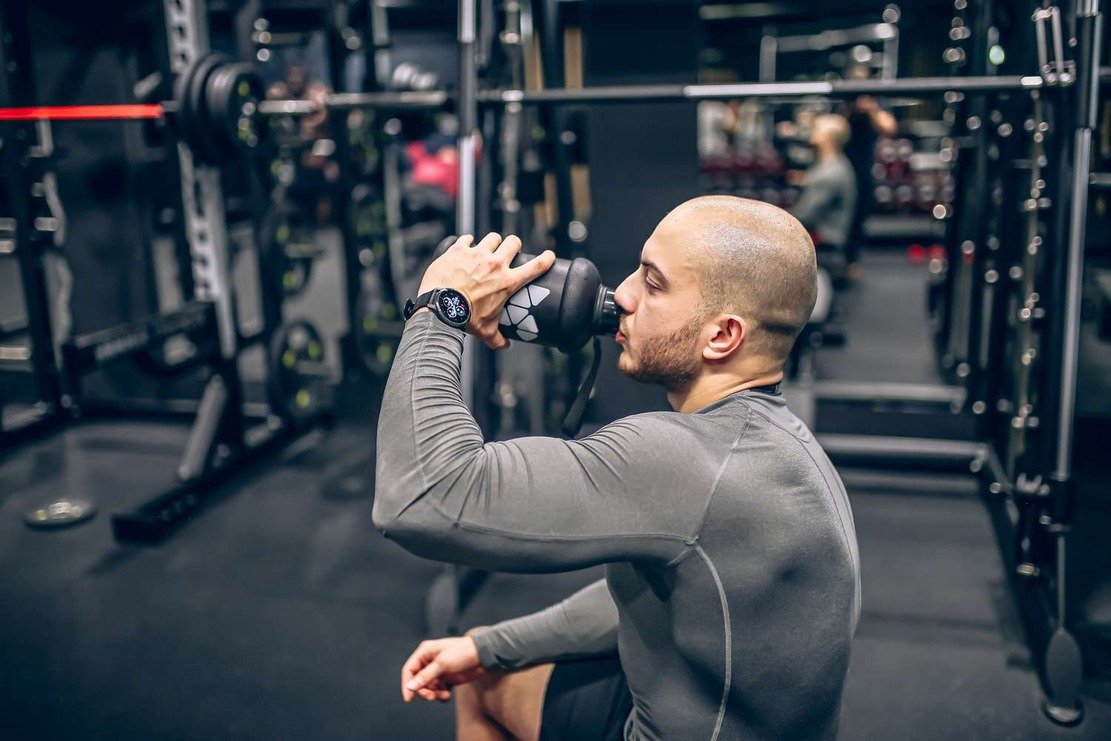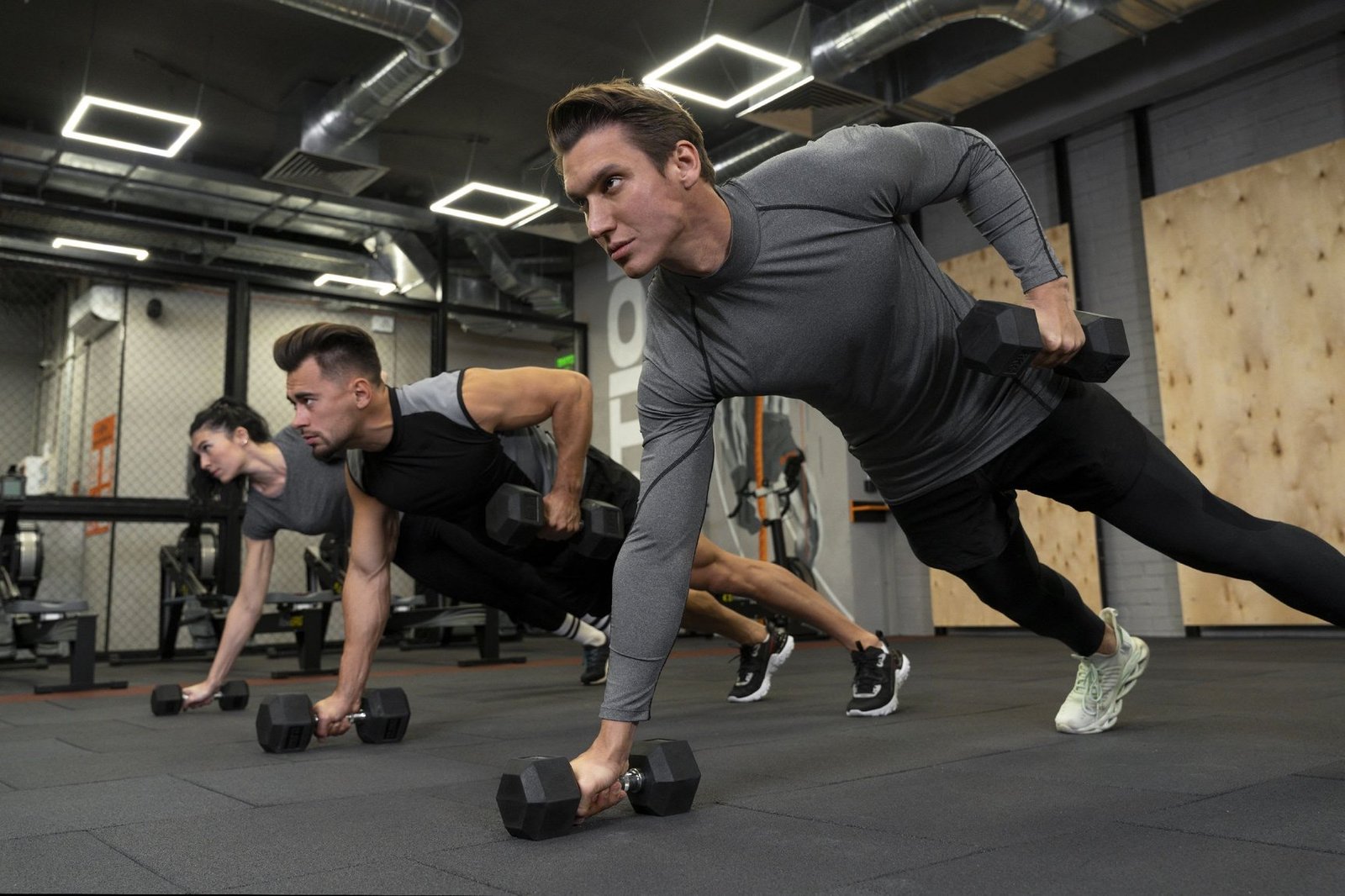
Muscle recovery is one of the most important aspects of exercise, yet it’s often overlooked. You can focus on the intensity of your workouts, but how you perform after muscle recovery determines whether your muscles become stronger or stay the same. Protein is crucial in this recovery process because it’s the main building block needed for muscle repair and development. Learning how to properly supplement with protein can transform your workouts and help you recover faster between workouts. This in-depth tutorial explores the science behind protein and muscle recovery. It will help you refine your nutrition plan for maximum muscle growth and faster recovery.
Components of Protein:
Protein is made up of amino acids, which your body uses to repair damaged muscle fibers during exercise. It’s the building block of muscle tissue. During exercise, especially during strength training or intense workouts, microscopic tears occur in your muscle tissue. The breakdown of muscle protein is a natural and essential process for muscle development. When you consume protein, your body initiates muscle protein synthesis, using the amino acids in protein to build muscle fibers stronger than before.
There are 20 amino acids, nine of which are essential because your body can’t make them. You must obtain these essential amino acids from food, so consuming sufficient protein is crucial for regular exercisers. Complete proteins contain all nine essential amino acids. Incomplete proteins, on the other hand, do not. The quality and variety of the protein sources you consume directly influence your muscles’ ability to recover and adapt to training stress.
The Science of Protein and Muscle Recovery:
In the hours after exercise, complex molecular mechanisms link protein intake to muscle recovery. During exercise, your muscles break down more protein than they produce, resulting in a negative protein imbalance. This imbalance persists until you provide your body with sufficient amino acids through food or supplements. Only then can the muscle recovery process truly begin.
Research shows that consuming protein after a workout can stimulate muscle protein synthesis for up to 48 hours, with the greatest increase occurring in the first few hours after exercise. Leucine is an amino acid that is particularly important in initiating this anabolic response, as it signals to your muscles that the necessary energy is available. Research suggests that the best way to build muscle is to consume about 2.5-3 grams of leucine, which is equivalent to about 25-30 grams of high-quality protein.
How Much Protein Do You Need?
Many factors influence how much protein you should consume, including your weight, workout intensity, fitness goals, and overall activity level. Current research suggests that active people need more protein than inactive people. For example, people who regularly do strength or endurance training should consume 1.6 to 2.2 grams of protein per kilogram of body weight per day.
This means that someone weighing 70 kg (154 lbs) should consume 112 to 154 grams of protein per day. However, simply meeting your daily protein intake isn’t enough for optimal recovery. Consuming protein throughout the day is crucial. Research shows that consuming 20 to 40 grams of protein every three to four hours can increase muscle protein synthesis. This approach is more effective than consuming large amounts of protein in one or two meals, as your body can’t process excess protein effectively.
The Best Protein Sources for Post-Workout Recovery:
Not all types of protein are equally effective in promoting muscle recovery. Animal proteins generally have a complete amino acid profile, making them easier for the body to absorb. Lean meat, poultry, fish, eggs, and dairy products are all high-quality, easily digestible protein sources. Greek yogurt and cottage cheese are particularly beneficial because they contain casein, which slowly releases amino acids over several hours.
Plant-based protein sources can also promote muscle recovery when consumed in combination and in moderation. Quinoa, buckwheat, and soy products like tofu and tempeh are all complete proteins. Lentils, chickpeas, hemp seeds, and spirulina are also beneficial plant sources. Some plant-based proteins may not contain all the amino acids you need, but consuming a variety of plant-based proteins throughout the day ensures you get all the amino acids you need for optimal recovery. If you can’t get protein directly from whole foods, protein powders (such as whey, casein, or plant-based protein powders) are an easy way to get the protein you need after a workout.
When to Consume Protein?
The concept of the “anabolic window” has evolved significantly as research has helped us better understand the timing of protein consumption. Early studies suggested that adequate protein intake was possible within 30–60 minutes after exercising; however, more recent findings suggest that this window is much longer than previously thought. You can be more sensitive to amino acids for up to six hours after exercise, allowing for greater dietary flexibility.
However, consuming protein within two hours of exercise is still beneficial, especially if you exercise on an empty stomach or haven’t consumed protein for several hours. Consuming protein before exercise is also beneficial because it can help prevent muscle breakdown during exercise, as amino acids are already present in your bloodstream. For best results, try to consume protein both before and after exercise. This ensures that your muscles always have the building blocks they need to recover.
Debunking Protein Myths:
There are many misconceptions about protein and muscle recovery in the fitness world, and these can hinder your progress. A common myth is that your body can only absorb 20 to 30 grams of protein at a time. This myth leads some people to eat multiple small meals throughout the day. When you consume around 25 to 40 grams of protein, muscle protein synthesis decreases, but your body will still absorb more protein and use it for other purposes, such as replenishing amino acid stores and strengthening the immune system.
Another common assumption is that plant-based proteins are less effective for muscle building than animal-based proteins. While plant-based proteins may require a higher amount to achieve the same amino acid profile, research shows that adequate plant-based protein intake can promote muscle development and recovery, just like animal-based proteins. The key is to get enough total protein from various sources and ensure you get enough leucine to trigger muscle protein synthesis.
Maximize Your Recovery:
To maximize your muscle recovery, you need to do more than just meet your daily protein intake. You need to plan. Make sure you consume high-quality, complete protein sources throughout the day and pay special attention to your post-workout meals. Remember that protein works best when combined with other nutrients, especially carbohydrates. Carbohydrates help transport amino acids to muscle cells and replenish glycogen stores depleted during exercise. How well your body utilizes the protein you consume depends on your sleep quality, hydration, and ability to manage stress. By learning how these proteins work and applying proven strategies, you create the optimal environment for muscle recovery. This allows you to train more often, reach your fitness goals faster, and minimize frustration.
FAQs:
1. When is the best time to consume protein after a workout?
The “anabolic window” lasts up to six hours after a workout, but it’s best to consume protein within two hours, especially if you haven’t consumed it in a while. This window helps your muscles produce the most protein and helps them recover as quickly as possible.
2. Can I get enough protein from plant foods to help my muscles recover?
Yes, consuming sufficient and varied plant proteins can aid muscle recovery. To ensure you get all the essential amino acids, you can vary your plant-based protein sources throughout the day. Furthermore, try to consume slightly more protein than you get from animal proteins.
3. Do you need protein powder to help your muscles recover?
Protein powder is helpful, but if you get enough protein from whole meals, you don’t need it. Supplements can help athletes who need a lot of protein, people who don’t have much time to cook, or people following a plant-based diet who require extra protein.
4. How much protein is too much for muscle recovery?
Consuming more than 2.5 to 3 grams of protein per kilogram of body weight per day generally doesn’t help build muscle and can worsen kidney function in some people. Avoid excessive intake and try to stay within the ideal range.
5. Does your activity level affect the amount of protein you need for recovery?
Yes, strength training and high-intensity exercise damage muscles more quickly than moderate-intensity aerobic exercise, so you need more protein. Endurance athletes need more protein than strength athletes, typically 1.2 to 1.6 grams per kilogram of body weight. Strength athletes need 1.6 to 2.2 grams per kilogram of body weight.



